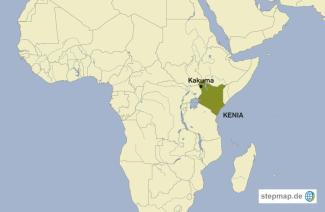Journalism
Giving refugees a voice

Normal 0 21 false false false EN-CA X-NONE X-NONE /* Style Definitions */ table.MsoNormalTable {mso-style-name:"Normale Tabelle"; mso-tstyle-rowband-size:0; mso-tstyle-colband-size:0; mso-style-noshow:yes; mso-style-priority:99; mso-style-parent:""; mso-padding-alt:0cm 5.4pt 0cm 5.4pt; mso-para-margin-top:0cm; mso-para-margin-right:0cm; mso-para-margin-bottom:8.0pt; mso-para-margin-left:0cm; line-height:107%; mso-pagination:widow-orphan; font-size:11.0pt; font-family:"Calibri",sans-serif; mso-ascii-font-family:Calibri; mso-ascii-theme-font:minor-latin; mso-hansi-font-family:Calibri; mso-hansi-theme-font:minor-latin; mso-ansi-language:EN-CA; mso-fareast-language:EN-US;}
The newspaper is called Kanere, short for Kakuma news reflector. It is currently produced on a shoestring budget with small funds from donor organisations.
A modest print run supplements the online presence once per month. Copies are made available in public spaces in the four sections of the Kakuma camp and the nearby Kalobeyei camp, which together house nearly 200,000 refugees.
Since its founding in 2008, Kanere has reported events in the camp and advocated for refugee rights. It reports regularly on the camp’s chronic water shortages, frequent crime and corruption of aid staff. Previous issues focused on the Covid-19 pandemic, the legal rights of refugees and the alarming suicide rate among female residents, as rapes and sexual assaults are rife.
The reports have produced results: Kanere’s articles on sexual assaults and gun violence have led to increased police patrols and installation of street lights. After Kanere criticised the United Nations High Commissioner for Refugees (UNHCR), which administers the camp, for being unavailable to residents, UNHCR set up field posts where refugees can meet staff members.
Much of the coverage remains controversial, particularly for UNHCR. When Kanere was founded, UNHCR refused to cooperate and in fact harassed journalists involved. UNHCR was accustomed to having a monopoly on information and declined to fund Kanere as long as it remained independent.
Kanere was initially funded by a Fulbright Research Grant from the US Institute of International Education. It has since acquired the status of an NGO under Kenyan law. The news outlet continues to seek funding from humanitarian and development organisations.
Kanere currently has 17 reporters earning little or no pay. The team is multinational; the Kakuma camp has refugees from 19 countries, including South Sudan, Sudan, Somalia, the Democratic Republic of the Congo, Burundi and Ethiopia. The staff’s diversity enables coverage from different viewpoints and across language barriers. Most staff members have prior experience in journalism.
Working conditions are difficult. Editors and reporters work from home, as the newspaper lacks an office. The team shares five laptops and a few old cameras and video recorders. Electricity and internet data transmission are costly, and power cuts are frequent.
Moreover, Kakuma is hot all year and often has water shortages. When the rain comes it is often heavy, flooding rivers, blocking roads and damaging homes made of mud bricks and corrugated iron. But the hard work has its rewards: “It is very challenging to report in Kakuma but the Kanere team is dedicated and trusted within the refugee communities,” says Gind Ibrahim, Kanere’s Kenyan reporter.
Qaabata Boru, an Ethiopian journalist, is the founder and editor-in-chief of Kanere. He currently lives in Canada and edits the newspaper remotely.
kakuma.news@gmail.com
Link
Kanere:
https://kanere.org/







